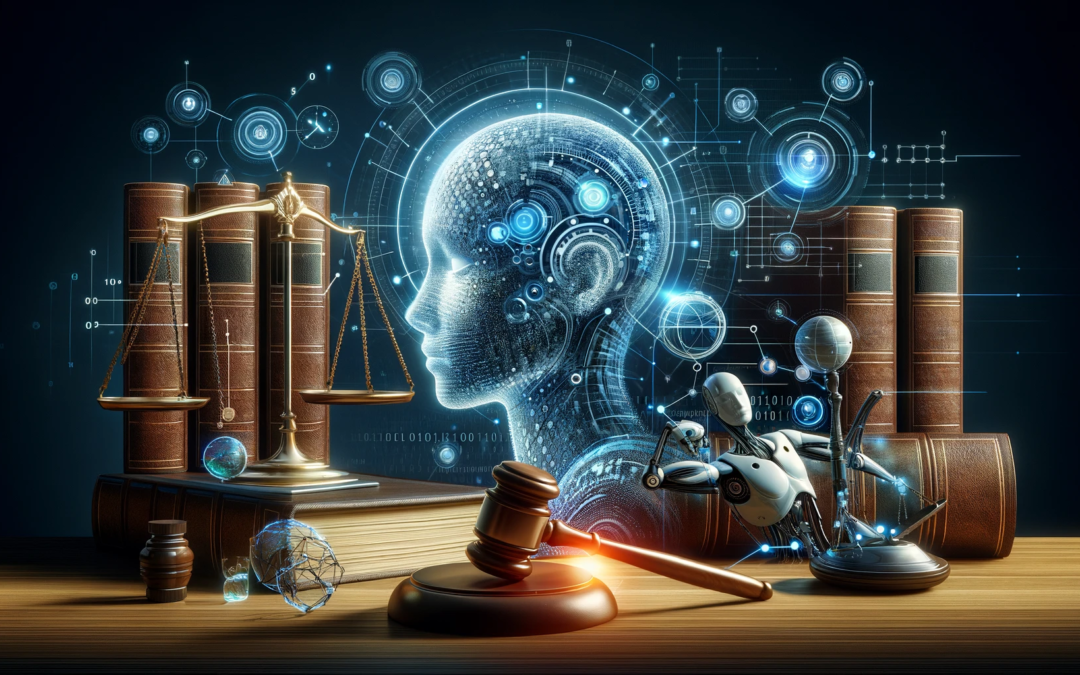The legal profession has long been known for its intricacies and complexities. However, with the advent of human-level artificial intelligence (AI), the legal landscape is undergoing a significant transformation. This blog post will explore the impact of AI on the legal profession, discussing how it is streamlining legal processes and revolutionizing legal analysis and services.
AI in Legal Research and Analysis
One of the key areas where AI is making a profound impact is in legal research and analysis. AI-powered tools are now capable of enhancing legal research, analyzing vast amounts of case law, and assisting in legal decision-making. These tools leverage natural language processing and machine learning algorithms to provide lawyers with valuable insights and recommendations. For example, platforms like X and Y are revolutionizing legal research by offering comprehensive and efficient access to relevant case law and legal precedents.
Automating Legal Procedures
AI is also playing a crucial role in automating routine legal tasks, such as document review and contract analysis. By leveraging AI technologies, law firms can streamline these processes, saving time and improving accuracy. AI-powered software can quickly review and analyze documents, identify relevant information, and flag potential issues. This automation not only increases efficiency but also reduces the risk of human error, ensuring greater accuracy in legal procedures.
AI in Predictive Legal Outcomes
Another significant development in the legal field is the use of AI algorithms to predict the outcomes of legal cases and negotiations. By analyzing vast amounts of historical data, AI can identify patterns and trends that humans may overlook. This predictive analysis can assist lawyers in making informed decisions, assessing the likelihood of success in a particular case, and even predicting settlement amounts. However, it is important to recognize the limitations of predictive analysis and the need for human judgment in interpreting and applying the results.
Ethical and Privacy Concerns
As AI becomes more prevalent in the legal profession, it raises important ethical and privacy concerns. One of the primary concerns is bias in AI algorithms, as they are trained on historical data that may reflect societal biases. Transparency and accountability are also critical considerations, as AI systems may be difficult to understand and audit. Legal professionals and AI developers are actively working to address these concerns, striving to create fair and transparent AI systems that uphold ethical standards.
AI’s Impact on Legal Employment
The integration of AI into the legal profession is undoubtedly reshaping legal jobs. While some tasks are being automated, new roles are emerging that require expertise in AI and data analysis. Legal professionals are adapting by acquiring new skills and leveraging AI tools to enhance their work. However, concerns about potential job displacement persist. It is crucial for the legal community to proactively address these concerns and ensure a smooth transition to an AI-driven legal landscape.
The Future of AI in Law
Looking ahead, the future of AI in law holds immense potential. Advancements in machine learning, natural language processing, and predictive analytics will continue to transform the legal profession. However, questions arise about the long-term effects of AI on law and justice. How will AI impact the fairness and accessibility of legal services? What role will human judgment play in an AI-dominated legal landscape? These are important questions that require careful consideration and ongoing dialogue.
Engaging with the Audience
We invite readers to share their opinions and experiences with AI-driven legal tools and services. Have you encountered AI-powered platforms in your legal practice? How do you envision the future of law in the era of advanced AI? Join the conversation and contribute to the discussion on AI’s emerging role in the legal field.
Conclusion
The integration of AI into the legal profession is revolutionizing the way legal services are delivered. AI is streamlining legal processes, enhancing legal research and analysis, and enabling predictive legal outcomes. However, it is crucial to strike a balance between technological innovation and ethical considerations. As the legal landscape continues to evolve, it is essential to uphold the principles of fairness, transparency, and human judgment. By embracing AI while maintaining a critical and ethical approach, the legal profession can harness the full potential of AI to better serve society.
Visual Elements: Include images or graphics showcasing AI applications in the legal field, such as AI-assisted research tools, document analysis interfaces, and predictive analytics models. Use infographics to illustrate the impact of AI on legal processes and employment.
SEO Elements: Integrate keywords like “AI in law,” “AI legal profession,” and “AI-driven legal services.” Create a compelling meta description that encapsulates the post’s focus on AI’s role in reshaping the legal landscape.










